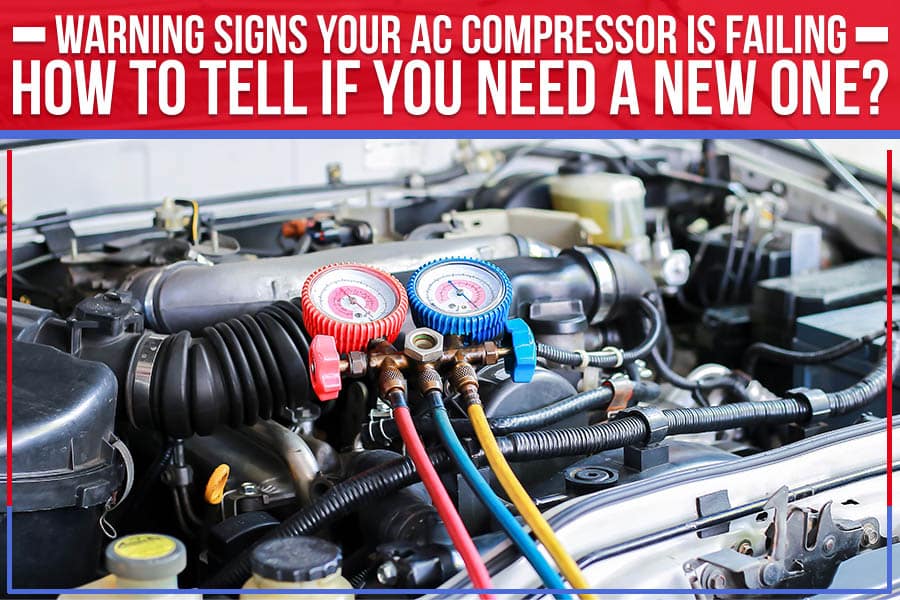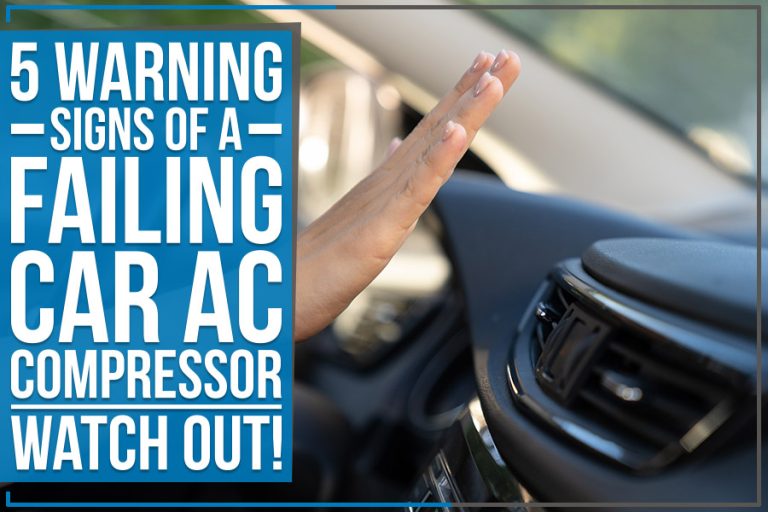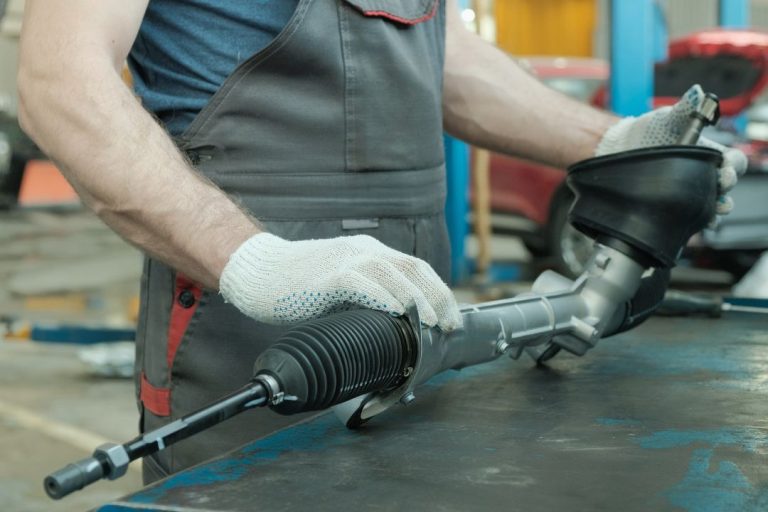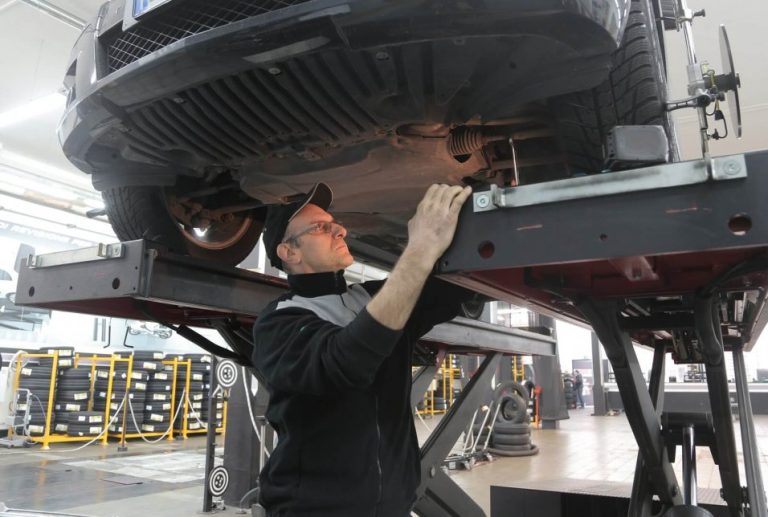How Do You Know If Your Compressor is Bad? 7 Warning Signs
To know if your compressor is bad, listen for odd noises like grinding or squealing and check for warm air from the vents. Having a properly functioning air conditioning system is crucial for maintaining a comfortable indoor environment, especially during hot summer months.
Your AC compressor plays a vital role in the cooling process, and if it starts to fail, it can lead to various issues affecting the overall performance of your HVAC system. Understanding the signs of a bad compressor is essential for early detection and timely repairs to prevent further damage and ensure efficient operation of your air conditioning unit.
We will discuss common symptoms that indicate a faulty AC compressor, helping you identify potential problems before they escalate.
Signs Of A Bad Compressor
If you notice odd noises, a worn-out serpentine belt, warm air from vents, or leaking refrigerant in your AC system, your compressor may be failing. Another sign could be less air flow, warmer air, refrigerant leaks, or vibrating when starting up.
These issues indicate the need for AC compressor service.
Lack Of Cool Air
If your AC system is not producing cold air or the air is not as cold as it should be, it could be due to a faulty compressor or a broken pulley.
Loud Noises
A bad compressor or a broken pulley can create a loud noise, such as grinding, squealing, or knocking sounds.
How do you know if your AC compressor needs to be replaced?
How do you check and see if a compressor is bad?
How do I know if my A/C compressor is bad?
- You’ve noticed less air is coming out of your air vents.
- Your circuit breaker keeps tripping.
- You hear unusual noises like clicking or rattling.
- Your AC stops blowing cold air.
- Puddles or moisture around the HVAC system.
- Your air conditioner won’t start.
How do you know when your air compressor is going out?
If you hear chattering, whining, squealing, chirping, or rattling sounds coming from the AC compressor, it is time for AC service.
Some noises remain constant and result from either a faulty clutch or a seizing shaft.
Warning Signs Your Car AC Compressor is Going Bad:
- You Hear a Ticking or Chattering Noise.
How To Diagnose A Bad Compressor
Diagnosing a bad compressor in your HVAC system is crucial to ensure efficient cooling. Here are some steps you can take to determine if your compressor is the culprit:
Check Voltage
Firstly, verify that the compressor is receiving the correct voltage to function properly. Check the voltage supply to the compressor unit.
Check Fuses And Breakers
Inspect the fuses and breakers in your system to ensure they are not blown or tripped, as this can indicate an issue with the compressor. Replace any damaged fuses or reset the breakers.
Checking The Wiring
Examine the wiring connected to the compressor for any signs of damage or wear. Damaged wirings can disrupt the flow of electricity to the compressor, leading to malfunctions.
Isolating The Compressor
Isolate the compressor from the rest of the system to analyze its performance independently. This will help determine if the issue lies solely with the compressor.
Replace Components
If after thorough inspection you find the compressor to be faulty, consider replacing key components such as the capacitor and contactor. This can often help resolve compressor issues and restore functionality.
Warning Signs For A Bad Ac Compressor
An AC compressor is an essential component of your air conditioning system, and identifying warning signs for a failing compressor can help prevent further damage and costly repairs. Here are some common warning signs to look out for:
Less Airflow
When you notice a decrease in the amount of air flowing through your vents, it could be a sign of a bad AC compressor.
Warmer Air Flowing Out
Feeling warmer air than usual coming out of your vents indicates a potential issue with the AC compressor’s functionality.
Refrigerant Leakage
Refrigerant leakage around the AC unit is a clear sign of a compressor problem, as the compressor plays a crucial role in the circulation of refrigerant.
Tripping Circuit Breaker
If your circuit breaker keeps tripping, it may indicate a compressor malfunction, which requires immediate attention to avoid further electrical issues.
Vibrations During Startup
Unusual vibrations and noises during the startup of your AC system can be a strong indicator of a faulty AC compressor.
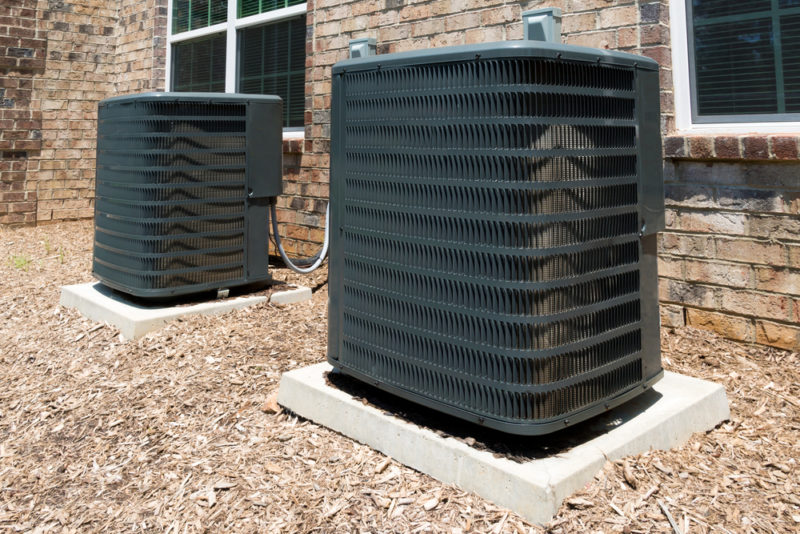
Credit: www.lunsfordac.com
Symptoms & Signs Of A Bad A/c Compressor
If your AC system blows warm air, has unusual noises, or lacks proper cooling, your compressor may be the culprit. Keep an eye out for strange sounds and reduced air quality to determine if your compressor is bad. Check for leaks or insufficient cold air to spot potential issues early on.
Reduced Airflow
One of the common symptoms of a bad A/C compressor is reduced airflow. If you’ve noticed that less air is coming out of your air vents than usual, it could be a sign of a faulty compressor. This can be particularly evident when comparing the airflow to other areas in your home or even to the airflow from neighboring vents. When the compressor is not working properly, it struggles to generate the required pressure to push the cooled air through the ductwork and into your living space. As a result, you may experience weak or insufficient airflow, making it harder for your air conditioner to effectively cool your home. This can lead to discomfort, especially during hot summer days. If you suspect that your compressor is the culprit behind the reduced airflow, it’s important to have it checked by a professional HVAC technician. They will be able to diagnose the issue and recommend the necessary repairs or replacements. Ignoring the problem can lead to further damage and potential breakdown of your entire cooling system. Here are a few additional signs to look out for:- Loud Noises: A bad compressor or a broken pulley can create loud noises, such as grinding, squealing, or knocking sounds. These noises can indicate mechanical issues within the compressor and should be addressed promptly.
- Lack of Cool Air: If your A/C system is not producing cold air or the air is not as cold as it should be, it could be due to a faulty compressor or a broken pulley. This can result in an uncomfortable indoor environment during the hot summer months.
- Puddles or Moisture: If you notice puddles or excessive moisture around your HVAC system, it could indicate a refrigerant leak caused by a failing compressor. Refrigerant leaks not only affect the performance of your A/C system but can also be harmful to the environment.
How To Tell If Your Home Ac Compressor Is Bad
Is your home AC compressor causing problems? Look out for warm air from vents, odd noises, or leaking refrigerant. Check for continuity and run-to-start tests to diagnose compressor issues effectively. Keep an eye out for less airflow, warm air, or unusual noises as signs of a bad compressor.
Reduced Airflow
If you’ve noticed that less air is coming out of your air vents, it could be a sign of a bad compressor in your home AC system. Reduced airflow can indicate that the compressor is not functioning properly or is on the verge of failing. This can lead to poor cooling performance and discomfort in your home, especially during hot summer months.
Compressor Not Turning On
A clear indication of a bad compressor is when your AC unit fails to turn on. If you’ve tried to turn on your air conditioner but it simply won’t start, the compressor could be the culprit. This can be a frustrating experience, especially on hot days when you rely on your AC to provide relief from the heat.
When you encounter this problem, it’s important to check other potential causes, such as a tripped circuit breaker or a blown fuse, before concluding that the compressor is the issue. However, if you’ve ruled out these common causes and the compressor still won’t turn on, it’s likely time to consult a professional HVAC technician for further diagnosis and repair.
Understanding these two key symptoms of a bad home AC compressor can help you identify potential issues with your cooling system. If you suspect that your compressor is bad, it’s crucial to address the problem promptly to avoid further damage to your AC system and ensure your home remains comfortable and cool.

Credit: blog.mccarthytoyotaofsedalia.com

Credit: accontractors.com
Frequently Asked Questions Of How Do You Know If Your Compressor Is Bad
What Are The Symptoms Of A Bad Ac Compressor?
A bad AC compressor may cause warm air, odd noises, like grinding or squealing, and refrigerant leaks.
How Do You Know If Your Ac Compressor Needs To Be Replaced?
Signs of a bad AC compressor include lack of cool air, loud noises, reduced airflow, warmer air coming from the vents, and leaking refrigerant. If you notice any of these symptoms, it may be time to replace your AC compressor.
How Do You Check And See If A Compressor Is Bad?
To check if a compressor is bad, look for these signs: lack of cool air, loud noises like grinding or squealing, reduced airflow, warm air from vents, puddles or moisture near the system. Also, check for unusual noises like clicking or rattling and if your air conditioner won’t start.
How Do You Know When Your Air Compressor Is Going Out?
If you notice odd noises, warm air, or leaking refrigerant, your air compressor may be going bad. In addition to diminished airflow and unusual noises, a faulty compressor can also lead to less cool air and vibration during startup.
Conclusion
Recognizing the signs of a failing compressor is crucial to maintaining the efficiency of your HVAC system. Whether it’s unusual noises, warm air from the vents, or reduced airflow, prompt diagnosis and action can prevent further damage. Regular maintenance and professional inspection can ensure a well-functioning compressor and a comfortable living space.

